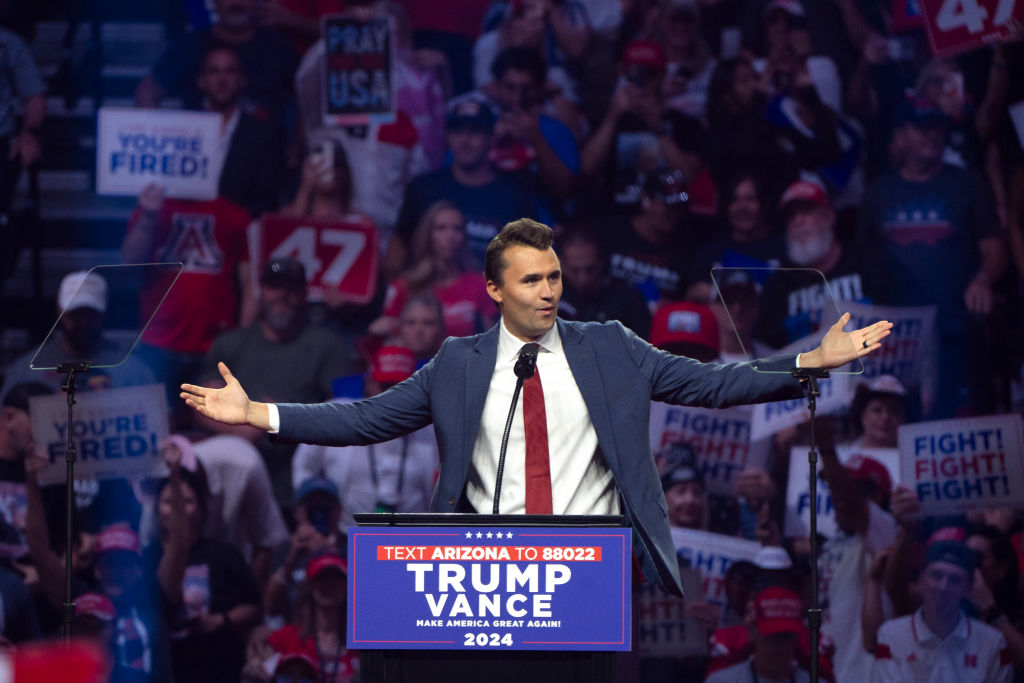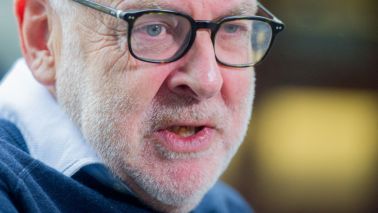Charlie Kirk was not storming a government building. He was not brandishing a weapon. He was not even shouting. He was on stage, mid-sentence, addressing a university audience at a speaking event. Then he was shot in the neck. And now he is dead.
No civilised society can survive a situation in which public speech becomes a life-threatening act
What occurred at Utah Valley University is not just a shooting, but an event that punctures the illusion that liberal democracies are still safe places to think aloud. However you viewed Kirk’s politics, whether you found him a bracing truth-teller or a contrary demagogue, he was, in the most basic sense, a political communicator. He built his career around public speech. He was attacked while exercising that speech on a US campus, in broad daylight. The implications are unignorable.
Kirk’s style was divisive, deliberately so. His rhetoric was sharp, moralising, often confrontational. He relished provocation. But he did not advocate violence. He debated. He wrote. He toured campuses. He invited questions. And for doing so, for speaking with clarity, certainty, and ideological conviction, he was targeted.
A single bullet, reportedly fired from 200 metres away, ended his life. But it cannot end the conversation. This was not the chaos of a riot or even the collateral damage of a protest gone wrong. This was something colder, more intimate: the calculated silencing of a man on stage with a microphone.
One does not have to agree with Kirk, on guns, on universities, on Trump, on anything, to recognise the gravity of that image. It is the image of a country losing its grip on the most fundamental of liberal principles: that words are not violence, and violence must never be the answer to words.
For years, Kirk warned that it had become dangerous to speak openly if one held conservative views. Many dismissed that claim as theatrical. Now, it looks like prophecy. His books, his speeches, his podcast appearances, all returned to the same theme: that expressing dissenting views in public life, especially on campuses, came with mounting costs. Not just reputational or professional costs, but personal ones. Threats. Ostracism. Hostility. He argued that universities had become places of ideological conformity and subtle coercion. He said that tolerance had been redefined as submission. Now, the country must reckon with whether he was right.
But this moment is larger than Kirk himself. It is larger than the American right. It is about whether political discourse in the West can survive the current climate of mutual contempt. Speech is being policed by mobs, by institutions, by informal hierarchies of outrage. And increasingly, speech is being met not with argument, but with force. That is the climate in which a man like Kirk could be attacked, not for plotting, not for conspiring, not for harming, but for speaking.
Earlier this year, in May, Kirk spoke at the Oxford Union. In his own account of the event, he noted that the students were appalled by views that have become mainstream in America, that they seethed and muttered when he described lockdowns as pointless, and erupted in uproar when he questioned the official narrative surrounding George Floyd’s death. He wrote that they laughed when he said Britain and America were two of the least racist countries in the world. Kirk saw this as evidence of a cultural lag: that elite students in the UK were clinging to ideological scripts already waning in the United States.
When I spoke at the Oxford Union just six months earlier, I was advised by my security to bring bodyguards. At the time, it seemed an overreaction. But when I arrived, I saw at once that it was not. The atmosphere was hostile, the crowd volatile. The sense of potential escalation was real enough to justify the precaution. The combination of vitriol and visceral mob behaviour made it abundantly clear that, had the opportunity arisen, something worse could have occurred. That such measures were even considered necessary, at a debating society in a Western democracy, speaks volumes about the moment we are in.
Kirk was also a fierce advocate of the Second Amendment. And so his shooting will raise questions he himself would have maybe debated. Are we still capable of distinguishing between liberty and nihilism? Are we arming ourselves against tyranny, or against each other? Is the right to bear arms being used to protect freedom, or to obliterate the conditions that make freedom meaningful?
No civilised society can survive a situation in which public speech becomes a life-threatening act. And no society that cannot tolerate ideological diversity deserves to call itself free. The murder of Charlie Kirk is a warning. We are drifting, or hurtling, towards a political culture in which people are not debated or challenged, but eliminated. And once that line is crossed, once bullets enter the space where arguments should be, the whole premise of democratic life collapses.
Kirk was doing what he believed in: standing up and speaking out. He believed speech should be fearless, provocative, even risky. But it should not be fatal. Not in America. Not in 2025. Not on a university campus.







Comments